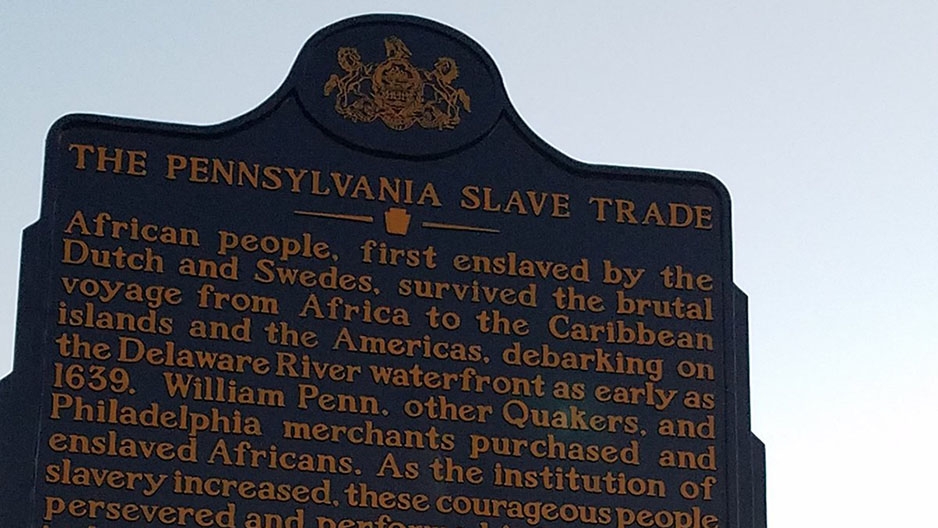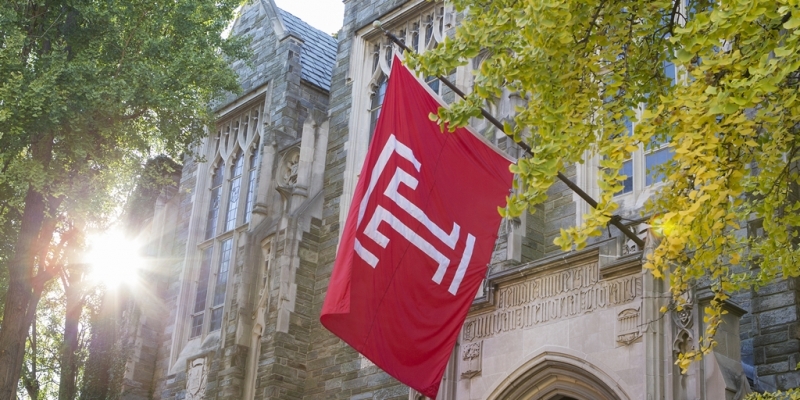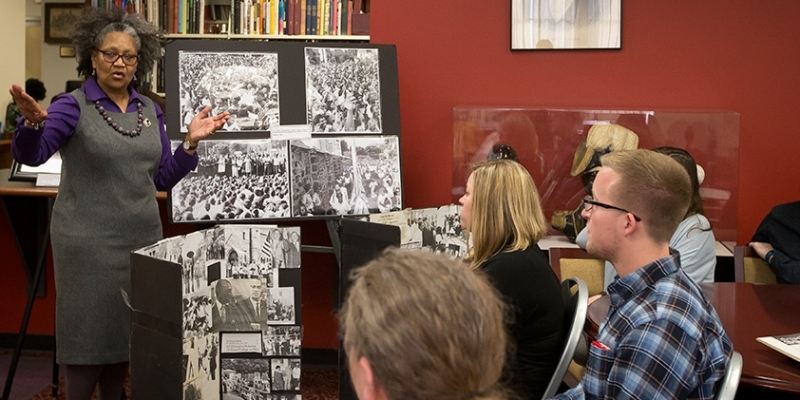Historical marker recognizes slave trade
A new historical marker memorializes the lives of countless enslaved Africans who debarked on the Delaware Valley.

The Antebellum south wasn’t the only American territory with ties to the slave trade.
Although cities north of the Mason-Dixon Line are known throughout history for working to end the slavery system, many northern cities participated heavily in the import of enslaved Africans.
Philadelphia was no exception.
As early as 1639, African people transported as human cargo from Africa and the Caribbean debarked on the Delaware River waterfront. Some were sold into bondage in Philadelphia while others were transported south.
In an effort to commemorate the lives of enslaved Africans who stopped first in the Delaware Valley, Charles L. Blockson, curator emeritus of the Charles L. Blockson Afro-American Collection, Temple University Libraries, submitted a nomination along with letters of support from members of the community to have a historical marker placed at a popular Delaware River port.
The nomination was accepted and now Philadelphia is home to a special commemorative marker acknowledging the lives of those who may have been forgotten. On August 5, several historians, politicians, thought leaders and community members gathered for the dedication of the official state historical marker commemorating the Pennsylvania Slave Trade, which took place at this year’s Ancestral Remembrance Day held near the Independence Seaport Museum, 211 South Christopher Columbus Blvd., in Philadelphia.
“William Penn, other Quakers, and Philadelphia merchants purchased and enslaved Africans. As the institution of slavery increased, these courageous people persevered and performed integral roles in building Pennsylvania and the nation,” part of the marker reads.
According to research for the nomination, Philadelphia on the Delaware River was one of more than 175 Middle Passage ports in 50 nations of North, Central and South America, the Caribbean and Europe that were active in the slave trade.
The Pennsylvania Slave Trade marker is among 23 state historical markers recently approved by the Pennsylvania Historical and Museum Commission.

